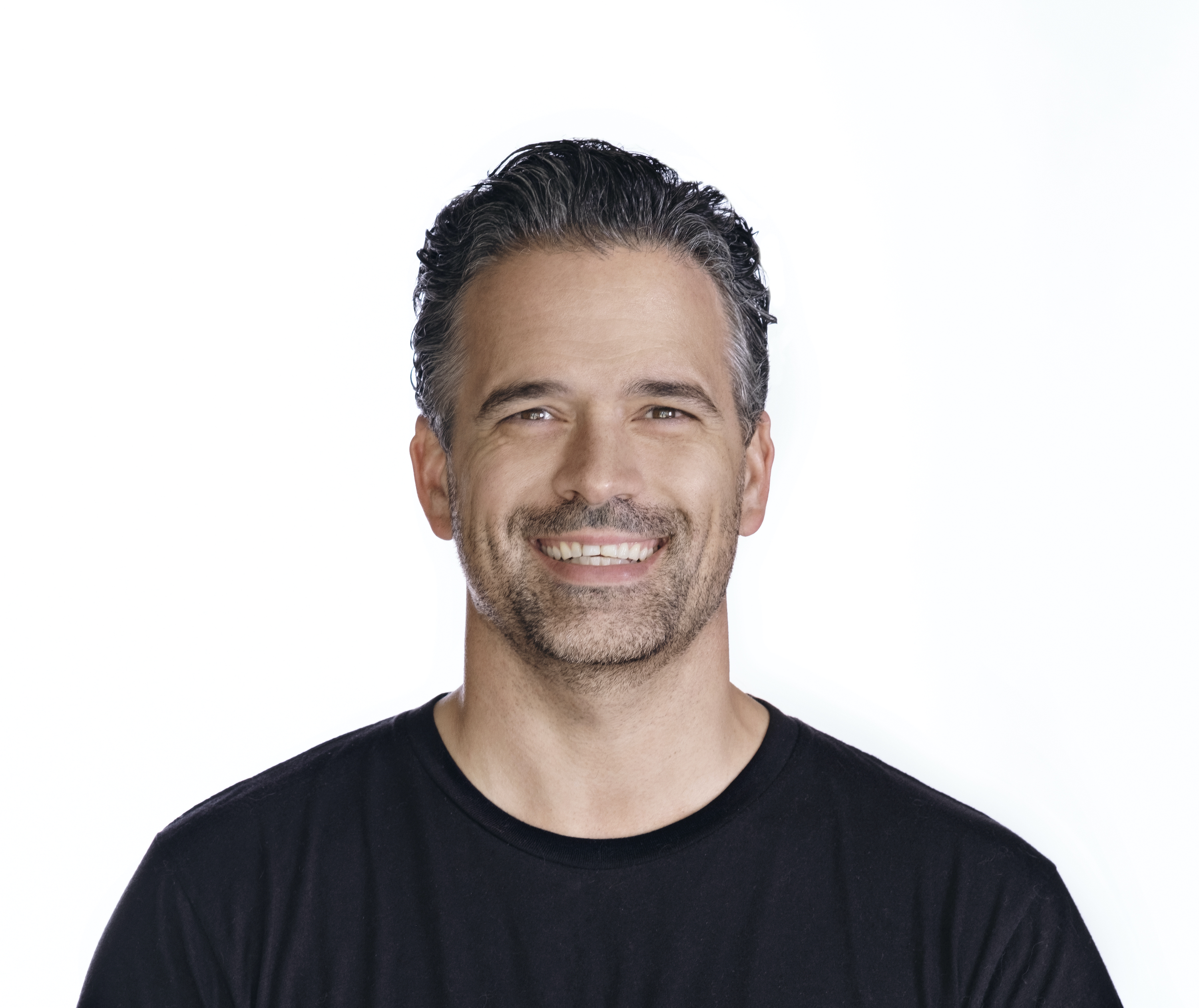What Is a T-Shaped Marketer? A Complete Guide for the AI Era

Jesse Wisnewski


Professional Development
T-shaped marketers are more vital than ever.
AI is changing the marketing landscape at breakneck speed. AI tools are no longer a glimpse of the future—they’re here, transforming how we work. They can write copy, craft stunning visuals, produce engaging videos, and analyze complex data sets.
It’s both exhilarating and unnerving, isn’t it?
Because let’s be honest: it’s not hard to imagine a world where AI can handle most marketing tasks. That’s a daunting thought for many of us.
But here’s the good news: this is your moment to stand out.
Becoming a T-shaped marketer isn’t just a strategy—it’s a lifeline. It’s how you future-proof your career and ensure you’re indispensable in a world of ever-smarter software.
If this concept is new to you, let me explain.
A T-shaped marketer has 1-3 specialized skills—areas where they excel—and a broad understanding of other disciplines. Picture the letter “T”: the vertical line represents deep expertise, while the horizontal line symbolizes a wide range of complementary skills.
Here's what that looks like:

As AI advances, one thing becomes clear: human expertise will always be essential. AI might craft a marketing strategy or churn out creative assets, but someone still needs to bring it all to life. It’s not just about creating; it’s about connecting. That’s where you come in.
You’re the one who can bridge the gap—taking the raw material AI provides and turn it into results that matter.
Marketers with both depth and breadth will lead the way in this new era. This is why T-shaped marketers aren’t just needed—they’re irreplaceable.
Are you ready to future-proof your career?
In this post, I’ve got everything you need to get started:
- What is a t-shaped marketer?
- The benefits of being a T-shaped marketer
- The comprehensive skills set of T-shaped marketers
- 5 steps to becoming a T-shaped Marketer
- Practical ways you can build skills
Let's dig in.
What is a t-shaped marketer?
A T-shaped marketer has 1-3 deep skills (the vertical bar of the “T”) and a broad range of complementary skills, experience, and knowledge (the horizontal bar).
Let’s break it down.
The vertical part of the “T” represents deep expertise in 1-3 areas. This could be:
- Crafting SEO strategies that drive organic growth
- Building a content marketing engine that converts readers into customers
- Running paid media campaigns that consistently deliver a high ROI
- Establishing a brand identity that resonates deeply with your audience
These are your superpowers—the skills you’ve honed or are actively mastering.
The horizontal part of the “T” is just as important. It represents broad skills, knowlege, and experience across other marketing disciplines. These complementary skills might include:
- Understanding analytics to measure the impact of your work
- Developing basic design skills to enhance creative campaigns
- Gaining familiarity with email marketing to nurture leads
- Learning the basics of video production to improve your storytelling
Think of this as the glue that holds your expertise together, allowing you to collaborate effectively and see how every piece of the marketing puzzle fits.
Here’s what this looks like in action:
- You’re a content marketing pro (vertical skill), but you understand SEO well enough to optimize every piece you create (horizontal skill)
- You’re a paid media expert (vertical skill), but you can craft persuasive ad copy because you’ve studied copywriting (horizontal skill)
- You’re an email marketing strategist (vertical skill), but you can build landing pages that convert because you’ve dabbled in design and user experience (horizontal skills)
- You’re an SEO expert (vertical skill), but you understand content strategy, analytics, and team dynamics well enough to lead an organization’s marketing efforts and guide cross-functional teams (horizontal skills)
By combining deep expertise to drive results with broad knowledge to collaborate effectively, you’ll position yourself as an indispensable marketing leader.
The Benefits of Being a T-Shaped Marketer
Being a T-shaped marketer gives you a unique edge.
With deep expertise and broad skills, you will be effective and adaptable. This versatility makes it easier to thrive as the industry shifts.
Here are some key benefits:
#1. Master AI Tools
AI is changing marketing fast.
Tools like content generators, analytics platforms, and design software are everywhere. More comprehensive AI solutions, like Jasper and Copy.ai, offer go-to-market tools that will transform your work.
But here’s the key: AI is only as effective as the marketer using it.
While AI can generate blog posts, it’s your expertise in SEO, copywriting, and audience insights that will make them successful. AI design tools can create stunning visuals, but without a deep understanding of branding, those visuals won’t resonate. Even advanced go-to-market tools require your strategic thinking to align positioning with business goals.
As a T-shaped marketer, you’ll leverage AI across disciplines to work smarter—not harder. You’ll create better content, automate repetitive tasks, and optimize performance, all while ensuring that the human touch remains at the heart of your marketing efforts.
#2. Increased Flexibility
Being T-shaped equips you to stay agile.
While you may begin with a specific specialty, developing a broad base of skills enables you to adapt quickly. Whether pivoting strategies, exploring new tools, or stepping into new roles, your expanded knowledge keeps you ready for change.
By diversifying your skill set, you can respond effectively to shifting market dynamics and tackle whatever challenges arise.
#3. Better Collaboration
In marketing, you don’t work alone.
A broad skill set helps you collaborate better with content creators, designers, videographers, software engineers, and analysts. You’ll understand their challenges and what needs to be done and communicate effectively. This improves strategies and bridges gaps between teams.
#4. Path to Leadership
T-shaped marketers are naturally suited for leadership.
Leaders need to see the big picture and understand how different parts of marketing connect. As a T-shaped marketer, you’re already thinking deeply and broadly. You can connect the dots, bring teams together, and understand how marketing funnels and channels work together. That’s an essential skill for any leader.
The Comprehensive Skill Set of a T-Shaped Marketer
There's a tremendous amount you can master or learn as a marketer. And let me shoot you straight: you can't do it all.
Below is a list of skills and knowledge you can pursue. I'm not saying you need to do or know all of this. I'm laying out what options you have, including:
- Knowledge
- Skills
- Emerging trends
- Leadership skills
This guide isn’t about doing everything but giving you options. Use it to shape your unique path as a T-shaped marketer (more on this later).
Knowledge
These foundational areas are essential for understanding marketing at its core:
- Buyer Psychology: Understand how consumers think, behave, and make decisions.
- Market Research: Conduct surveys, focus groups, and competitive analysis to identify market needs.
- Audience Segmentation: Divide your audience into distinct groups based on behaviors, demographics, and interests.
- Storytelling: Use narratives to create emotional connections with your audience.
- KPI Measurement and Reporting: Learn how to set, track, and report on key performance indicators to evaluate success.
Skills
These are the practical skill you can master or learn:
- Copywriting: Craft compelling messages that resonate with target audiences.
- Data Analytics: Interpret data to optimize campaigns and measure ROI.
- Content Strategy: Plan, create, and manage content to engage and convert audiences.
- SEO (Search Engine Optimization): Improve search visibility to drive organic traffic.
- Social Media Management: Build and nurture communities on platforms like Instagram and LinkedIn.
- Campaign Planning: Design and implement marketing campaigns aligned with business goals.
- Email Marketing: Develop targeted campaigns to nurture leads and drive conversions.
- Media Planning and Buying: Strategize and purchase ad placements across platforms.
- Public Relations (PR): Manage media relations and enhance brand reputation.
- Conversion Rate Optimization (CRO): Improve website elements to increase desired user actions.
- Video Marketing: Plan, create, and optimize video content for platforms like YouTube and TikTok.
- Marketing Automation: Use tools like HubSpot or Marketo to automate repetitive tasks and personalize campaigns.
- E-commerce Marketing: Optimize online stores to drive traffic, conversions, and repeat customers.
- Influencer Marketing: Collaborate with influencers to expand brand reach.
- App Store Optimization (ASO): Improve app visibility to drive downloads.
- Affiliate Marketing: Manage partnerships to drive performance-based sales or leads.
- Customer Experience (CX): To enhance satisfaction and retention, design and manage end-to-end customer journeys.
- Web Development Basics: Learn HTML, CSS, or JavaScript, as examples, to collaborate effectively with developers.
- Paid Advertising: Managing ad campaigns on platforms like Google Ads and social media.
- Marketing Automation: Utilizing tools to automate repetitive tasks and personalize marketing efforts.
- User Experience (UX) Design: Ensuring digital interfaces are user-friendly and meet customer needs.
- Product Marketing: Positioning and promoting products effectively to target markets.
- Brand Strategy: Developing and maintaining a strong, consistent brand identity.
- Technical Marketing: Integrating technical skills into marketing practices, such as coding or using advanced software.
- Video Marketing: Planning, creating, and optimizing video content for platforms like YouTube and TikTok.
Emerging Trends
These emerging areas are shaping the future of marketing:
- AI and Machine Learning
- Voice Search Optimization
- Blockchain for Marketing
Leadership Skills
Leadership and collaboration are critical to your success as a T-shaped marketer:
- Leadership and Team Management: Inspire and guide teams to deliver results.
- Change Management: Lead teams effectively through strategy shifts or market changes.
- Negotiation Skills: Build partnerships and secure deals with vendors, influencers, and media platforms.
- Cross-Functional Collaboration: Work seamlessly with sales, product, and customer support teams to align efforts.
- Strategic Thinking: Connect the dots across marketing disciplines to craft cohesive strategies and see the big picture.
As a marketer, you have incredible opportunities to grow and specialize.
Build your foundation, sharpen your skills, and embrace the trends shaping the future.
You don’t need to master it all.
Choose what aligns with your strengths and career goals, which leads me to the next point.
5 Steps to Becoming a T-Shaped Marketer
Becoming a T-shaped marketer doesn’t happen overnight.
It’s a journey—one that demands intentional steps, perseverance, and a commitment to lifelong learning. But it's worth it. This section will give you a clear roadmap to guide you every step of the way.
Think about the knowledge, skills, emerging trends, and leadership qualities we just explored and filter them through this roadmap.
The ultimate goal? To become the best version of yourself as a marketer. So, embrace this roadmap with determination—it’s your guide to preparing yourself for the future of marketing.
#1. Choose a Path
The first step to becoming a T-shaped marketer is deciding where you want to go. This isn't about choosing a job title or niche—it's about figuring out what kind of marketer you want to become.
Where do you see yourself in 2-3 years? Do you want to be known as the go-to expert in branding, content marketing, or demand generation? Or maybe you want to grow into a leadership role, overseeing multiple areas of marketing?
Once you know your destination, it becomes much easier to chart the path to get there. Identify the skills you need to master to become a specialist in your chosen area. Then, think about how to start branching into other areas supporting your growth.
Your path will guide your next steps, so choose it intentionally.
#2. Lay a Foundation
You must build a solid marketing foundation.
Core marketing skills—like copywriting, data analytics, buyer psychology, content strategy, SEO, social media management, campaign planning, and email marketing—are the basics every marketer should know. These skills not only form the backbone of effective marketing but also help you collaborate across specialized areas.
Without this foundation, your knowledge will feel disjointed, making it harder to grow. So start here, learn the basics, and ensure you have a solid grasp of the core principles that tie marketing together.
If you're unsure where to start, review the list above and also check out 98 Best Marketing Books in 15 Categories if you'd prefer to read.
#3. Become a Specialist
Now, it’s time to go deep.
Choose one to three specific areas that align with your strengths, interests, and career goals. Whether it’s SEO, email marketing, demand generation, conversion rate optimization (CRO), social media strategy, or analytics, focus your efforts on becoming an expert in these fields.
Here’s how to develop your specialization practically:
- Know your why
- Identify your strengths
- Make micro-goals
- Study intensively
- Practice religiously
- Build a portfolio
- Pursue new opportunities
- Network with experts
Your specialization is your edge—what makes you indispensable and sets you apart from generalists. Mastering key areas makes you the go-to person in those domains, increasing your value and career opportunities.
#4. Build Broad Skills and Experience
As you develop deep expertise, it's time to broaden your skill set.
The goal here isn't to become an expert in everything—that's impossible. Instead, you want to be proficient enough in other areas to understand and connect them cohesively.
Think about cross-disciplinary skills like design, social media, and analytics. You don't need to be a master in these areas, but knowing enough to collaborate with others or make strategic decisions is crucial.
Look for gaps in your knowledge and take steps to fill them. This is how you transition from specialist to generalist, which makes you even more valuable.
#5. Embrace Lifelong Learning
Marketing never stands still.
AI tools, new social media platforms, and shifts in consumer behavior are constantly changing the landscape. That's why it's so important to embrace lifelong learning.
Stay curious, keep an eye on new trends, and don't be afraid to adapt.
Being a T-shaped marketer isn't just about reaching a certain skill level and stopping there. It's about continuously learning and evolving.
Marketing moves fast, and the most successful marketers are the ones who are prepared to adapt their plans, roll with the punches, and keep growing.
Practical Ways to Build Your Skills
Building your skills as a T-shaped marketer doesn’t have to be overwhelming. The journey might feel challenging at times, but every step you take brings you closer to becoming the type of marketer you envision.
You have access to countless tools and resources to help you along the way. Let’s dive in:
- Read books like the 98 Best Marketing Books in 15 Categories
- Take courses on platforms like Maven, Reforge, or CXL
- Volunteer for projects or start your own side hustle
- Enroll in online or in-person marketing classes
- Earn certifications like Google Analytics or HubSpot
- Join marketing communities or Slack groups
- Listen to marketing podcasts
- Attend webinars to learn from industry experts
- Create experiments like blogs or small campaigns
- Follow thought leaders and explore new tools
You don’t have to learn everything at once. Take it one step at a time. Celebrate small wins along the way. Each skill you master is an investment in your future. With persistence, you’ll become the well-rounded marketer you’re striving to be.
The T-Shaped Journey
The future of marketing is clear—those who adapt will thrive.
To stay ahead, you need to become a T-shaped marketer.
Specializing in one area isn't enough anymore. You need to broaden your skills and be ready to leverage AI tools now and especially in the future.
This is how you stay relevant.
This is how you succeed.
And the time to start is now.












